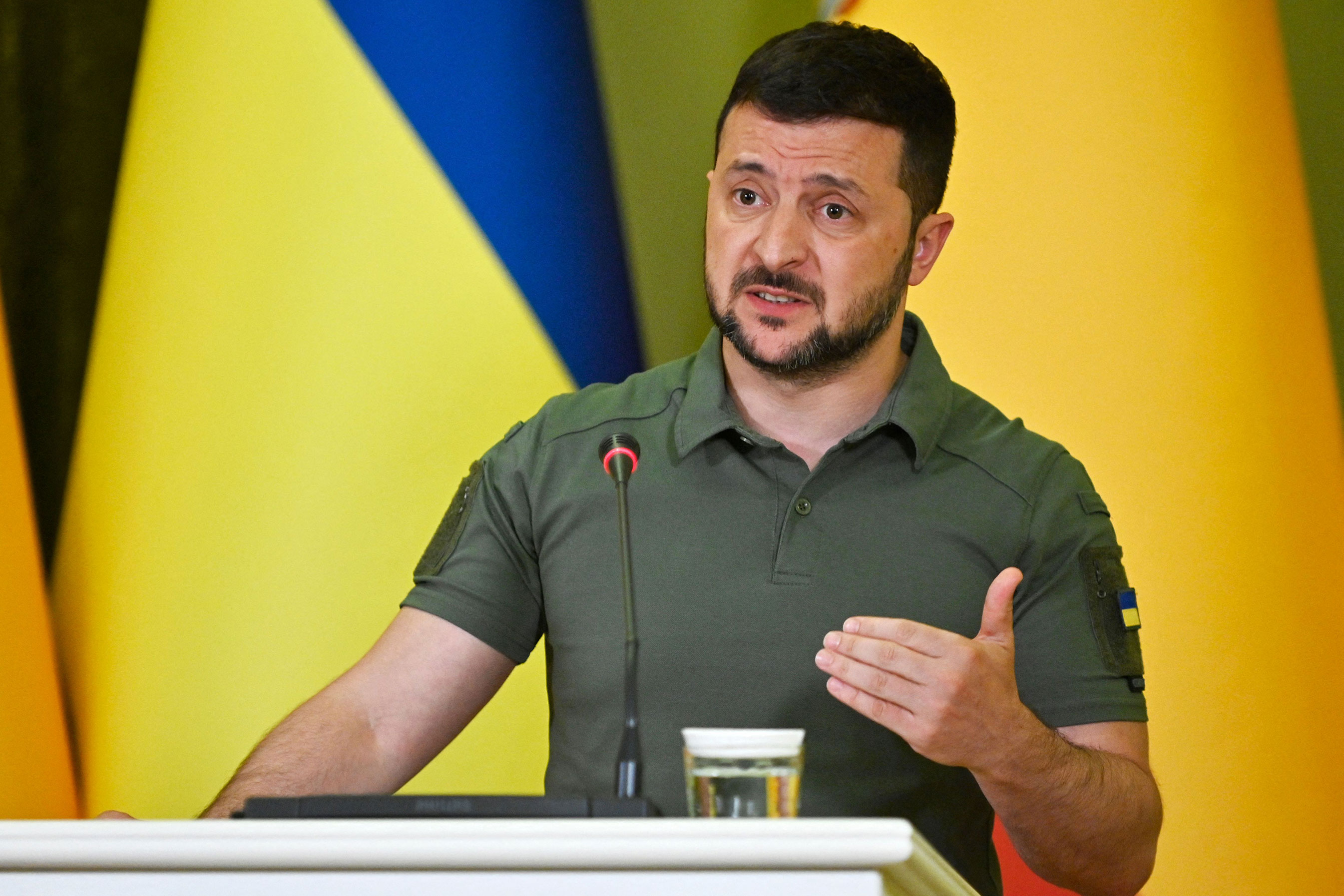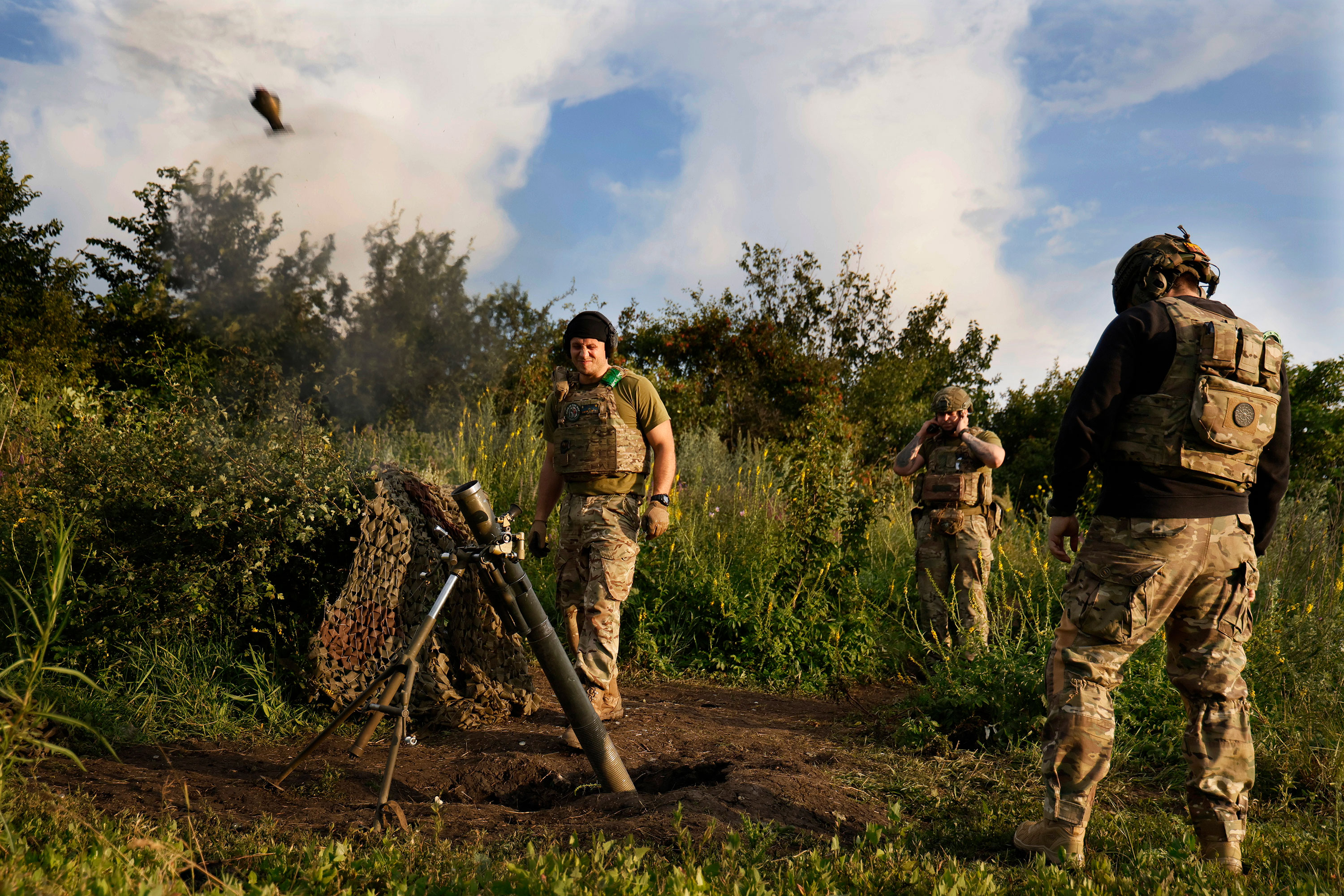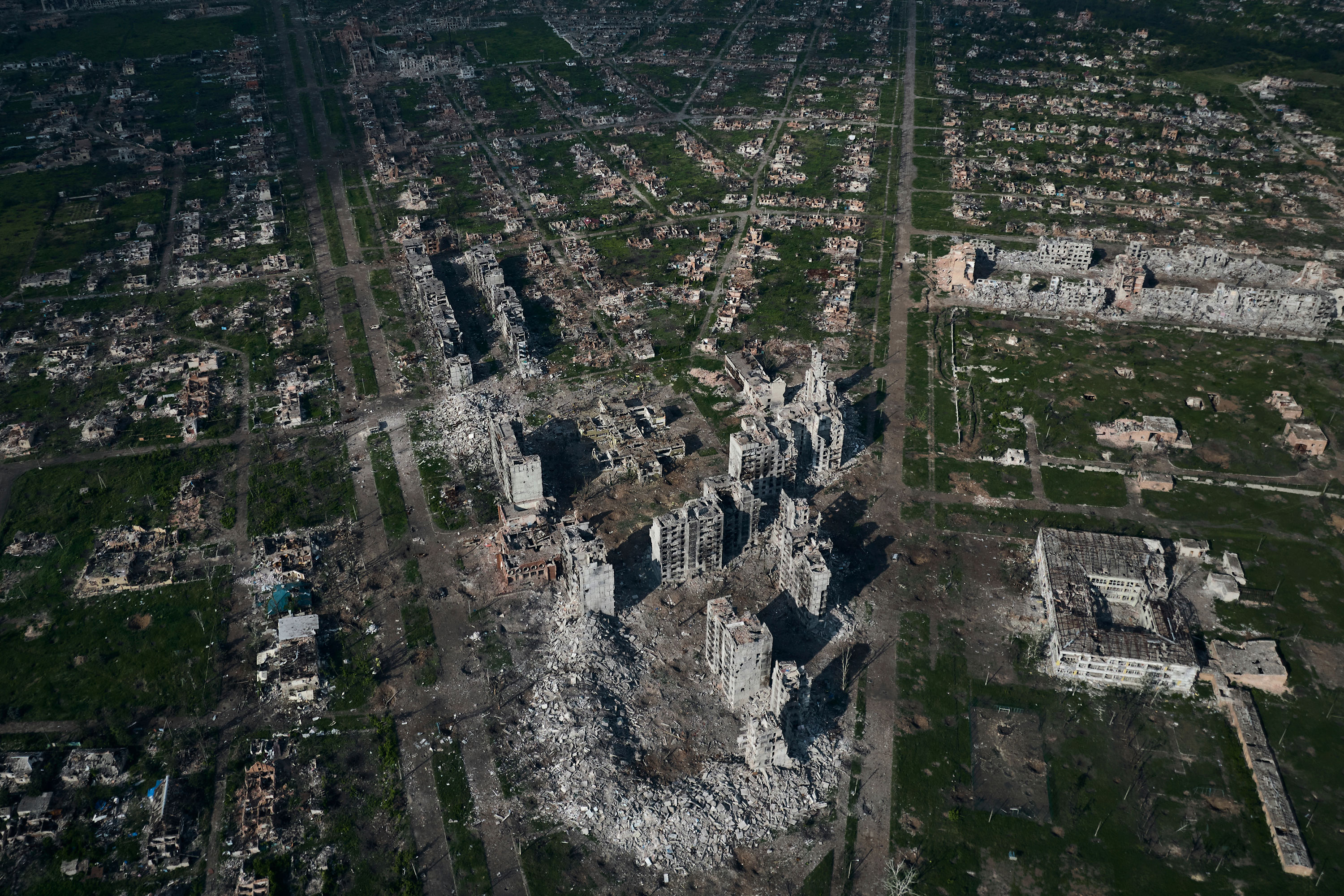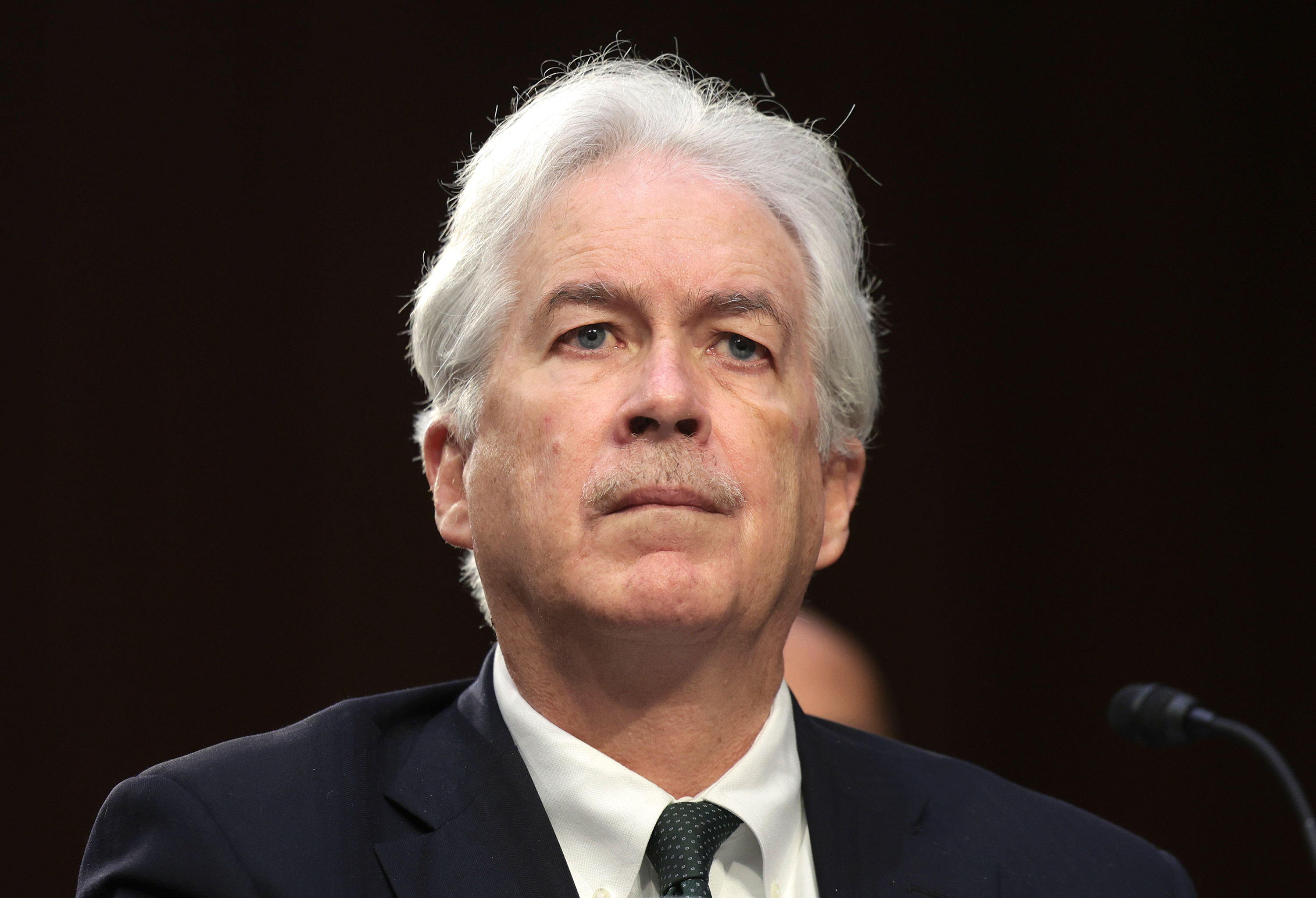We've wrapped up our live coverage of Russia's war in Ukraine. You can read more here, or scroll through the updates below.
July 1, 2023 Russia-Ukraine news
By Hafsa Khalil, Laura Smith-Spark, Adrienne Vogt and Tori B. Powell, CNN
Young Russian exile slams Moscow for punishing an armed rebellion less severely than its online critics

Olesya Krivtsova is a 20-year-old Russian student living in exile after being slapped with terrorism charges for social media posts criticizing the war in Ukraine.
Krivtsova, who was placed on Moscow's most-wanted list and fled to Lithuania and then Norway, says the disparity between her treatment and that of Wagner boss Yevgeny Prigozhin after his short-lived insurrection makes her angry.
Prigozhin was sent to Belarus, according to Belarusian President Alexander Lukashenko, after a deal was brokered to turn around his fighters from a march toward Moscow last week.
"Every day, we see the people put in jail for posts on the internet. But a person who is guilty of killing (multiple Russian soldiers) ... and they tell him you can go to Belarus; every time I think about it, I get angry," Krivtsova told CNN.
Russian authorities confirmed the crews of two Russian aircraft were killed during the failed rebellion on Saturday.
Criminal charges against Prigozhin and his fighters have been dropped, according to Russia's Federal Security Service (FSB).
"There is no law and no justice in Russia. It's just all one big act of insanity and hatred," Krivtsova says.
Watch the interview:
CIA director says war in Ukraine created a "once-in-a-generation opportunity" for recruitment
From CNN’s Sam Fossum

Discontent with the war in Ukraine has created what CIA Director William Burns called a "once-in-a-generation opportunity" for the recruitment of Russians.
"Disaffection with the war will continue to gnaw away at the Russian leadership, beneath the steady diet of state propaganda and practiced repression. That disaffection creates a once-in-a-generation opportunity for us at CIA, at our core a human intelligence service. We're not letting it go to waste," Burns said in remarks to the Ditchley Foundation in England.
Burns pointed to a recent CIA outreach effort on the popular social media platform Telegram, showing Russians how to contact the CIA securely on the dark web, which he said has garnered 2.5 million views in its first week.
"We're very much open for business," Burns said.
CIA officials involved in the project previously told CNN that Russia's invasion had created a historic opening for US intelligence and that a previous recruitment drive immediately following the launch of the invasion last year had been quite successful.
Burns also addressed the recent rebellion by Wagner boss Yevgeny Prigozhin, saying that his actions and speech prior to their march on Rostov-on-Don illustrate how the war has undermined Putin's power.
Zelensky says he's afraid to lose bipartisan support in the US
From CNN’s Mariya Knight and Maria Kostenko

Ukrainian President Volodymyr Zelensky said he's afraid to lose bipartisan support from the US, following what he called "dangerous messages coming from some Republicans."
“Mike Pence has visited us, and he supports Ukraine. First of all, as an American, and then as a Republican,” Zelensky said in a news conference with Spanish media in Kyiv on Saturday. “We have bipartisan support. However, there are different messages in their circles regarding support for Ukraine. There are messages coming from some Republicans, sometimes dangerous messages, that there may be less support.”
Zelensky said that regardless of who wins the next US Presidential election, maintaining bipartisan support is "the most important thing for Ukraine."
During the same news conference, Zelensky was asked if he fears for his own life, to which he replied that he thinks "it is more dangerous for Putin" due to the Russian president's growing number of international adversaries.
Some background: The topic of whether the US should continue aiding Ukraine against Russia's invasion has created a rift among the Republican party.
GOP presidential candidates are split into two camps: Isolationists, particularly former President Donald Trump and Florida Gov. Ron DeSantis, who believe the United States is too involved in supporting Ukraine’s efforts to fend off the Russian invasion; and hawks, including several former Trump administration officials, who argue for an even more aggressive posture toward Russia. Both sides are warning that if their positions aren’t heeded, a world war could follow.
CNN's Eric Bradner contributed reporting.
Zelensky says short-lived Wagner rebellion has diminished Russia's strength on battlefield
From CNN’s Mariya Knight and Maria Kostenko
Ukrainian President Volodymyr Zelensky said Wagner boss Yevgeny Prigozhin’s attempted rebellion in Russia last week “greatly affected Russian power on the battlefield” and could benefit Ukraine's counteroffensive.
“They are losing the war. They have no more victories on the battlefield in Ukraine, and so they are starting to look for someone to blame,” he said at a news conference with Spanish media that took place in Kyiv on Saturday.
But Prigozhin’s rebellion could be beneficial in the early stages of Ukraine's counteroffensive, he added.
“We need to take advantage of this situation to push the enemy out of our land,” he said.
Zelensky said the counteroffensive will not be done quickly because he values human lives and is strategic in where troops are deployed.
“Every meter, every kilometer costs lives. … You can do something really fast, but the field is mined to the ground,” he said. “People (are) our treasure. That's why we are very careful.”
Zelensky also claimed 21,000 Wagner mercenaries have been killed in eastern Ukraine. He did not specify over what time period the supposed deaths took place.
“The most powerful group of Wagnerites was in eastern Ukraine,” Zelensky said.
“Our troops killed 21,000 Wagnerites in eastern Ukraine alone; 80,000 Wagnerites were wounded,” he added. “These were enormous losses for the Wagner PMC.”
Neither side releases battlefield casualty counts, and CNN cannot independently verify Zelensky’s claims.
Eastern cities of Bakhmut and Marinka are seeing the fiercest fighting, Ukraine's military says
From CNN's Maria Kostenko and Radina Gigova

The most intense battles on the front line continue to be in areas within the cities of Bakhmut and Marinka in eastern Ukraine, the Ukrainian military said Saturday.
In Bakhmut, forces "continue to push the enemy on the northern and southern flanks," said Serhii Cherevatyi, spokesperson for the Eastern Grouping of the Ukrainian Armed Forces.
The Russian military has conducted 415 recent artillery attacks and three air raids, he said. Troops engaged in active combat seven times during that period.
In the Marinka area — south of Bakhmut, near the city of Donetsk — Russian forces continue relentless attacks, according to Valerii Shershen, a military press center spokesperson.
"This is the hottest spot," he said. "There were 15 combat engagements in the last day, most of them took place in Mariinka."
The city, which is now in ruins, has been on the front lines since the beginning of the invasion, with fighting at close-quarters among the rubble continuing almost daily.

Elsewhere on the eastern front: North of Bakhmut near the cities of Lyman and Kupyansk, Russia shelled Ukrainian positions 377 Russian times, launched three assaults and conducted 12 air raids, Cherevatyi said.
"Russians are constantly shuffling personnel," he said. "Recently they have moved an airborne regiment from the Lyman sector to the north of Bakhmut, replacing it with territorial defense troops," he said. "The enemy is concentrating their best forces in the areas of our attack. Number one is Bakhmut right now."
The Ukrainian spokesperson claimed Kyiv's forces are taking dozens of Russian prisoners every week. CNN cannot independently verify claims on battlefield developments.
To the south of Bakhmut near the town of Vuhledar, Russian shelling has increased around frontline areas.
"They do not launch any offensive actions but increase shelling. The number of enemy infantry has increased as well," said Nazarii Kishak, commander of the machine gun unit with the 72nd Separate Mechanized Brigade.
And near Berdiansk, on the far southern end of the eastern front, "our troops continue to consolidate their positions at secured positions and carry out mine clearance. They are on high alert to continue the offensive," Shershen said.
The entire front line in the south of Zaporizhzhia region is mined, he said. Russian forces have been "mining both manually and remotely, as well as with MLRS (multiple launch rocket systems)," he said.
What it's like inside a field hospital near the eastern front lines
In a field hospital that serves as a “stabilization point” close to the battles around Bakhmut, Ukrainian soldiers gasp in pain as they receive treatment after being wounded by Russian artillery fire while advancing on the eastern city.
During the course of a day, CNN's Ben Wedeman said he saw more than 50 troops who had shrapnel and artillery injuries, as well as concussions.
A vascular surgeon in the field hospital said he is surprised there aren’t more casualties in the early stages of Ukraine's counteroffensive.
The soldiers at the makeshift facility get their first proper treatment by a full medical team before being moved to other, better-equipped hospitals.
Watch here (Warning: Some viewers may find this report disturbing):
Russian shelling kills a man and wounds others in Zaporizhzhia region, local authorities say
From Maria Kostenko in Kyiv
At least one person has died amid heavy shelling across frontline communities in Ukraine's southern Zaporizhzhia region, according to the region's military administration.
A 51-year-old man died in the shelling in Mala Tokmachka village, southeast of Zaporizhzhia city, said Yurii Malashko, the head of the regional military administration.
A 40-year-old woman and a 39-year-old man were also wounded in the nearby village of Preobrazhenka, he said.
"They are being provided with medical assistance. Experts are responding to the aftermath of the shelling," Malashko said.
CIA director called his Russian counterpart following Wagner's insurrection
From CNN’s Alex Marquardt

CIA Director William Burns spoke to his Russian counterpart following the Wagner private military group's short-lived insurrection, according to a US official.
Burns reached out to Sergei Naryshkin — the director of the Foreign Intelligence Service of Russia — to reiterate that the US had nothing to do with last weekend's failed rebellion by Wagner chief Yevgeny Prigozhin, according to the official.
The Wall Street Journal was first to report the call.



